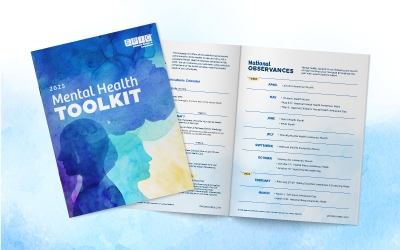There is more evidence that COVID-19 is not going to be as bad for employee benefit claims as feared. Last week, Unum released a report on leave trends and found that claims were down in the late summer, despite COVID-19 incidence increasing in many locations. Since March 2020, there has been a fairly steady decline in both leave requests and short-term disability claims, and the percentage of those claims related to COVID-19 has also declined. During the most recently reported period, ending September 13, these incidents amounted to only 11% of claims, down from a high of 32% for the bi-weekly period ending March 29. The concern is over a resurgence or a second wave, but this does not appear to be materializing.
Viewpoints from Craig Hasday
And the cost of care to employees and employers also seems to be relatively stable as compared to 2019.
The just-released Kaiser Family Foundation 2020 Employer Health Benefits Survey indicates a 4% increase in medical insurance costs from last year, with family coverage at $21,342 and employees paying 26% of this total. The average employee contribution for single coverage was 17% in 2020 and 27% for families. This compares to wages which increased by 3.4% and general inflation went up by 2.1% since last year. Notably, over the past five years, while family premiums have increased by 22%, workers’ contributions have gone up only 13%. However, cost-sharing for services also increased significantly. For example, single deductibles increased by 25%, and the percentage of workers covered by a plan with a single deductible over $2,000 increased from 19% to 26% over the same five-year period.
While the increase in costs for employer plans seems to be stable, the real concern is that reportedly 12 million Americans have lost coverage entirely due to the COVID-19 pandemic.
According to the Economic Policy Institute, 6.2 million employees have lost coverage provided by their employers because of COVID-19 so far. With their family members, this equates to 12 million Americans either uninsured or seeking coverage through COBRA, state-based Medicaid programs, coverage on the state-based exchanges, or through some other source. There’s no doubt that medical issues will lead to financial issues. Forbes Magazine reported that it expects a surge in bankruptcies, due to financial and medical concerns, once the federal stimulus stops.
The availability of healthcare for the substantially increased number of Americans not covered by the employer-based system is a central issue in the presidential election. Undoubtedly, the remedies proposed by both sides will not only impact those individuals but will spill over to the employer market. So, what appears to be stable is only stable for now.
Visit the EPIC coronavirus update center for more COVID-19 information
Sign up for EPIC Newsletters in one convenient location
See results from our In It Together pulse surveys on our COVID-19 strategic collaboration and idea-sharing forum
EPIC offers these opinions for general information only. EPIC does not intend this material to be, nor may any person receiving this information construe or rely on this material as, tax or legal advice. The matters addressed in this article and any related discussions or correspondence should be reviewed and discussed with legal counsel prior to acting or relying on these materials.
Related Content
Products
Employee Benefits Consulting
Our dedicated benefits team is focused on delivering better outcomes – to both your benefits program and ...
Products
Actuarial
Our Actuarial Team provides guidance on employee benefits and health and welfare programs to help meet ...
Coronavirus
Keeping You Informed Every Step of the Way Your dedicated resource as the news unfolds The coronavirus is an ...



